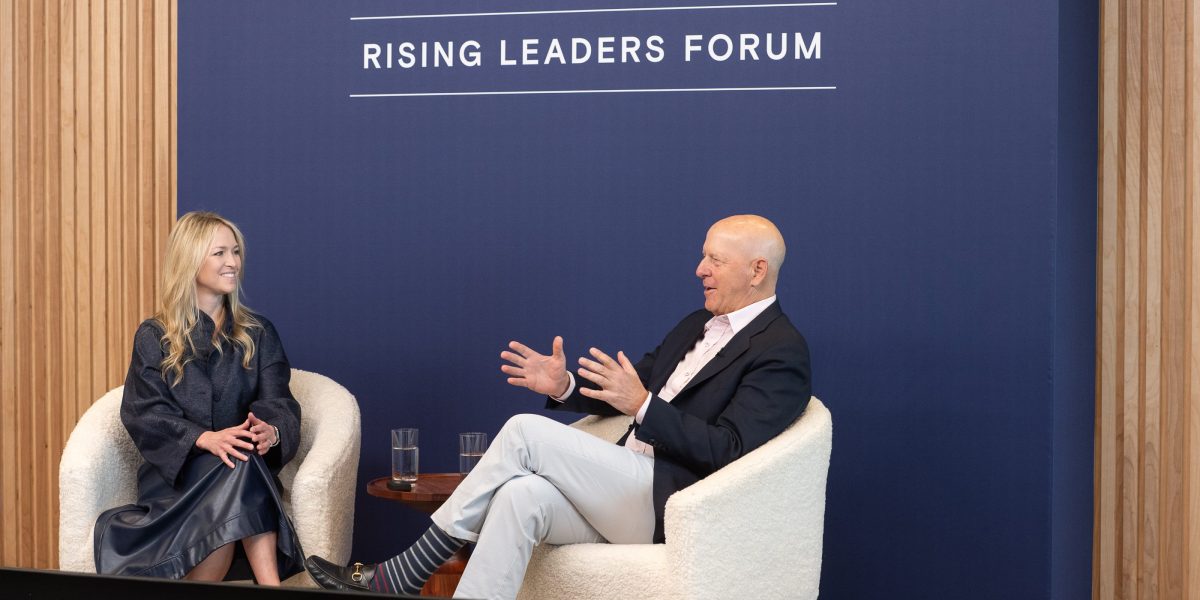Social psychologist and New York University professor Jonathan Haidt is the author of The Anxious Generation: How the Great Rewiring of Childhood Is Causing an Epidemic of Mental Illness, which has remained on the New York Times bestseller list since it was published one year ago.
“It has struck a chord,” said Ezra Klein Show host Ezra Klein on Tuesday’s episode of the podcast, which featured Haidt as a guest for an hour-and-13-minute discussion on the endless parenting struggle of trying to keep kids off screens.
The wide-ranging interview expounded upon Haidt’s four golden rules for curbing screen use—no smartphones before high school, no social media before 16, far more unsupervised play and independence for kids, and phone-free schools—and celebrated the fact that the last recommendation, about schools, is seeing some traction in various states.
But he also, in speaking with Klein, expanded on his four rules, warning that “modern parenting” appears to be hurting, not helping, the cause. Below, three of his most urgent messages to parents.
Stop spending so much time with your kids
Yes, you read that right. According to Haidt, the importance of “quality time” is a myth, and in fact does your child a disservice. He discussed this within the context of his rule about kids needing more unsupervised play, which is something too much screen time—as well as an omnipresent parent—robs.
“It’s not the parent’s job to socialize the child all along. It’s the parent’s job to provide the right environment to provide certain kinds of moral frameworks,” Haidt explained. He noted that, in the 1950s, ’60s, ’70s, and ’80s, “women were not spending five hours a day parenting,” because kids were more often left to their own devices—playing and roaming for hours at a time with other kids, the younger ones learning from the older ones.
“Everyone before the millennials had this childhood,” he said, noting that it shifted in the 1990s, when fears of abduction and the like took over.
“But the real work of brain development doesn’t happen when you’re with your parents. Your parents are home base—they’re your attachment figure,” Haidt continued. “When you feel securely attached, then you go off and explore…and that’s where the learning happens.”
It’s why, he added, “modern parenting is not good for the kids—and certainly not good for the adults,” particularly moms, who tend to bear the brunt of round-the-clock parenting.
But, Klein asked, what about the widely-held belief that spending lots of quality time with your kids is what makes a good parent?
“It’s definitely not true,” Haidt said. “You want to give your kids a quality childhood. You want to be a quality parent. But that doesn’t mean that you have to spend a lot of quality time with your kid. You need a warm, trusting, loving relationship. You need to provide structure and order and discipline.”
Too much time with a parent, he stressed, “is really bad for the kids because they don’t grow as much if their attachment figure is there.”
Understand that ‘the iPad is not like TV’
Something Haidt really wants parents to comprehend, he said, “is that the iPad is not like TV. TV is a good way of entertainment. TV puts out a story. But a touch screen is a behaviorist training device.”
When using a touch screen, he explained, “you get a stimulus, you make a response and then you get a reward, which gives you a little bit of dopamine and makes you want to do it again and again and again.” It can basically “train your child the way a circus trainer can train an animal,” he added. “So iPad or iPhone time for your 3-, 4- or 5-year-old is just not a good thing.”
Still, there are ways that parents can distinguish between “a pretty good use of screens and a really bad use of screens.”
A pretty good use, Haidt said, is to put on a movie that’s at least 90 minutes long. That way, “they’re going to pay attention to a long movie about characters in a moral universe. There are issues of good and bad and norms and betrayal. It’s part of their moral training, their moral formation.” And ideally, he added, they’ll be watching it with another person—hopefully a parent, but a sibling or friend is also OK, he said, “because it’s social.”
By contrast, he noted, “Here’s what’s really bad: iPad time by yourself,” specifically YouTube. “Because that’s exactly the opposite. It’s solitary. They’re not consuming stories—or, if they are, they are 15 seconds long and either amoral or really immoral—disgusting, degrading things, people doing terrible things to each other.”
That does a number on attention span, Klein added, who recalled finding the “endlessness of YouTube” to be “terrifying” when his kids were little. “My kids would never even watch a full thing, because they were always hitting the next thing under it. Because there’s always something more interesting.”
Assume the worst about AI
Haidt feels certain that 2025 is the year regulators and parents and anyone else with an interest in protecting kids from screens need to “move quickly,” he explained. “This is really our last year before A.I. really has a big impact on life.”
That’s because society is moving “from the idea that A.I. enables you to know everything” to the idea that “A.I. allows you to do everything.” Now A.I. agents “are going to give us omnipotence,” he warned. “And that would be horrible for children.”
That includes the ability to create friends to your specific likings.
“The way we adapt is by preventing kids from having these friendships,” he urged, referring to AI chatbot relationships—such as the romantic one that led to the suicide of a 14-year-old last year.
“I think we have to stop. This is not even about the content. We have to stop saying: Oh, we just need better content moderation. No, we don’t,” he said. “We need to realize kids have to go through a childhood in the real world with other kids within a moral universe where they experience the consequences of their own actions. And they have to learn how to deal with real people who are frustrating.”
If we give our kids A.I. companions that they can order around and will always flatter them, he continued, “we are creating people who no one will want to employ or marry. So we’ve got to stop.”
Haidt is hopeful that it’s not too late to put the genie back in the bottle—because unlike social media, AI is not yet fully enmeshed in our lives.
“A.I. is not yet entangled. A.I. is just coming in,” he said. “And in two or three years it will be entangled.”
And what’s vital to remember before then, Haidt said, is that “Silicon Valley has a horrible track record at living up to its promises, especially for kids. They claimed that social media is going to connect everyone. No, it actually disconnected everyone.”
And while there are amazing uses for A.I., some of which Haidt appreciates, it’s important to understand that “children are not adults,” he said. “And given the track record so far, we have to assume that these A.I. companions will be very bad for our children.” So approach it with a skeptical eye, he advises.
“Start by assuming it’s harming your kids,” he said, “and then you can bring in some uses where it’s not.”
More on screen time and kids:
This story was originally featured on Fortune.com
Source link


 Entertainment8 years ago
Entertainment8 years ago
 Politics8 years ago
Politics8 years ago
 Entertainment8 years ago
Entertainment8 years ago
 Entertainment8 years ago
Entertainment8 years ago
 Tech8 years ago
Tech8 years ago
 Tech8 years ago
Tech8 years ago
 Tech8 years ago
Tech8 years ago
 Politics8 years ago
Politics8 years ago






